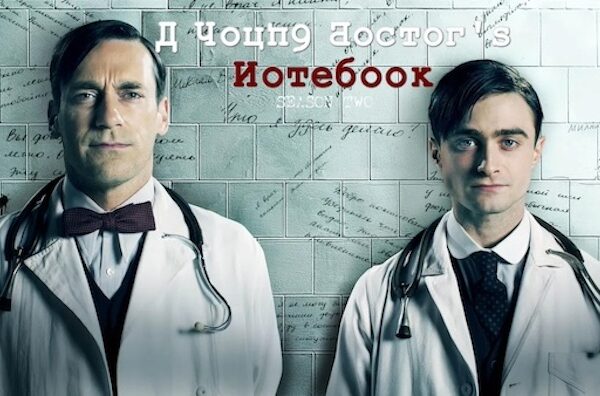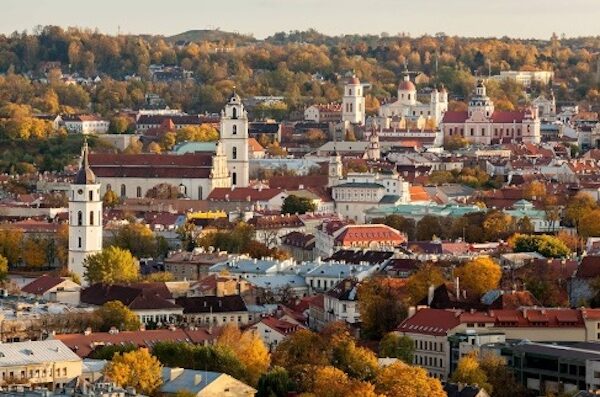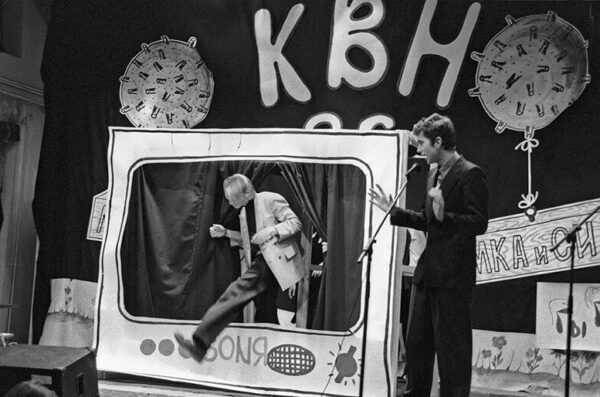Fall 2024 Courses
This is an unofficial list of courses that will be offered in Polish, Russian, and Lithuanian Studies in Fall 2024. It is strictly for the use of expanded course descriptions. For the complete official course offerings, please consult the My.UIC portal.
For a list of all courses and general course descriptions, please see the UIC Academic Catalog.
For information on Majoring and Minoring in Polish, Russian, and Central and East European Studies, including course requirements, please visit: https://prls.uic.edu/academics/major-and-minors/
Literature and Culture Courses (Taught in English)
RUSS 115: Russian Culture Before the Revolution (The Idea of Russian and East European Culture)
Tu/Th 11:00 AM – 12:15 PM
Instructor: Prof. Matthew Kendall. 3 hours. CRN: 33175
The world has always had a lot to say about the space we now call Russia. Many of Russia’s claims to fame and infamy have seemed at odds with each other: some saw Russia as a destitute, violent, and barbaric backwater, but many others thought of Russia as the home of first-rate art. While some perceived Russia as a depraved den of political schemes, many thought that it represented a pinnacle of effective governance and royal majesty, and others sensed a revolutionary potential that could re-shape ideas of the state forever. Our course will incorporate short readings (in English!) from Pushkin to Dostoevsky, and we will explore East European religious history, film, painting, architecture, cinema, and dance. Together, we will work to better understand what we mean when we use the word “culture,” and we will learn the history and consequences of how Russia understands its own.
Satisfies World Cultures GenEd requirement.
Counts towards the Russian Studies Major or Minor, & the CEES (Central & Eastern European Studies) Major or Minor.
Image

—
Image

—
POL 130: The Devil in Warsaw: Polish Prose in Modern Times (Masterworks of Polish Lit in Translation)
Tu/Th 12:30-1:45 PM
Instructor: Prof. Karen Underhill. 3 hours. CRN: 24966
Enter the vibrant and anguished world of 20th-century Polish prose with an introduction to literary works by futurist Aleksander Wat, Auschwitz survivor Tadeusz Borowski, poet and acerbic social critic C.K. Norwid, and modernist innovators Witold Gombrowicz, Bruno Schulz, and Debora Vogel — and join us as we discuss the modern text as both a hardworking machine, and an embodiment of desire. In this course we will ask: What does fiction do, and what roles has it played in helping to negotiate the experience of modernity? Is storytelling still necessary and possible in a world characterized by speed, the machine, and motion pictures? If so, what does it desire, and what does it promise?
Topics in this course include Positivist, Futurist, avant-garde and neo-Romantic movements in Polish literature; witness literature; and the role of literary theologies in a secular modern world. Reading short stories and novels written in Poland in the turbulent 20th century, we will consider stories that offer escape from the modern world into the worlds of fantasy, absurdity, or nostalgia; and others whose purpose is precisely to prevent escape from the shock or disillusionment of the 20th century.
No prerequisites. All texts will be read in English translation, with the option to read in the Polish original.
Satisfies Creative Arts or World Cultures GenEd requirement.
Counts towards the Polish Studies Major or Minor, & the CEES (Central & Eastern European Studies) Major or Minor.
RUSS 120: The Russian Short Story
MWF 11-11:50 AM
Instructor: TBA
3 hours. CRN: 33179
In this course we will analyze a wide array of short stories by some of the most important writers of the nineteenth and twentieth centuries. The course is intended both as an introduction to Russian literature and culture and, more generally, as an introduction to literary analysis as a powerful form of critical thinking. Emphasis will be placed on examining the evolving aesthetics of the short story in relation to the dynamics of Russian cultural history. Knowledge of Russian not required.
Satisfies World Cultures GenEd requirement.
Counts towards the Russian Studies Major or Minor, & the CEES (Central & Eastern European Studies) Major or Minor.
Image

—
Image

—
RUSS 130: Literature and Medicine
MW 3:00-4:15 PM
Instructor: Prof. Julia Vaingurt. 3 hours. CRN: 34736
Illness, recovery, and healing are universal human experiences and as such, they are prevalent themes in literature. In the Russian context, the subject of medicine becomes particularly fruitful, because some of Russia’s greatest writers were physicians and made doctors protagonists of their works.
This course will examine literary representations of the physician and narratives of illness in Russia from the 1860s to present. We will read fiction and memoirs by leading literary figures who were physicians (Chekhov, Bulgakov, Veresaev, and Aksenov) as well as semi-fictional and fictional case histories (Tolstoy, Solzhenitsyn, Ulitskaya, Palei). We will discuss how narratives help us make sense of our lives and our worlds in times of physical and emotional crisis. We will trace how medical ideas and history find reflection in literature and how literary concepts get utilized in medicine. We will analyze how the texts we read reveal and affect cultural assumptions about disease and medical authority. Addressing some of the most pressing issues of our era, the readings will challenge us to question our understanding and reconceptualize notions of normality/disability, health/disease, and life/death.
Located at the intersection of literature and medicine, this course will aim to enhance students’ narrative competency and communication skills, essential to the practice of either discipline. Last but not least, it will improve students’ quality of life!
Satisfies Creative Arts or World Cultures GenEd requirement.
Counts towards the Russian Studies Major or Minor, & the CEES (Central & Eastern European Studies) Major or Minor. Can also be taken as an elective for the Certificate in Medical Humanities.
LITH 115: Lithuanian Culture
Tu / Th 9:30-10:45 AM
Note: this course will meet ONLINE only, in synchronous remote format.
Instructor: Prof. Giedrius Subacius. 3 hours. CRN: 20699
Lith 115 offers a diversity of insights over the cultural landscape of Lithuania: language, mythology, literature, film, architecture, art, geography, population, emigration, history, resistance, and identity.
We read, watch, and discuss.
All class materials are available online (no textbook).
Satisfies World Cultures GenEd requirement.
Counts towards the CEES (Central & Eastern European Studies) Major or Minor.
Image

—
Image

—
CEES 247: AI (Central & Eastern European Science Fiction and Fantasy)
In person on Tuesdays, 3:30-4:45 PM, otherwise online asynchronous
Instructor: Prof. Julia Vaingurt. 3 hours. CRN: 49126
For centuries, artists, writers, and filmmakers have been fascinated with artificial intelligence. While scientists create sentient machines, art explores their imaginative possibilities and asks probing questions about the ever-increasing presence and influence of artificial beings in our daily lives. We will read classics of science fiction by Hoffmann, Capek, Lem, the Strugatsky Brothers, Asimov, and Pelevin, as well as contemporary cyberpunk and biopunk, and examine artificial beings on canvas and screen. We will consider the aesthetics, politics, and ethics of human-machine assemblages, relations and interactions. Students will also be able to engage and collaborate with educational AI for various tasks and reflect upon the pros and cons of its mediating presence.
Counts towards the Russian Studies Major or Minor, & the CEES (Central & Eastern European Studies) Major or Minor.
Beginning and Intermediate Language Courses
| Course | Time | Instructor | Prerequisites | Credit/CRN | Room |
|---|---|---|---|---|---|
| LITH 101: Elementary Lithuanian 1 | MW, 8-9:15 AM | Karile Vaitkute | None | 4 hours. CRN 34319 | TBA |
| LITH 103: Intermediate Lithuanian 1 | Tu/Th 8-9:15 AM | Karile Vaitkute | Grade of C or better in LITH 102 or the equivalent, *or* successful placement text | 4 hours. CRN 35559 | TBA |
| POL 101: Elementary Polish I | MWF 10-10:50 AM | TBA | None | 4 hours. CRN 35418 | TBA |
| POL 103: Intermediate Polish I | MWF 11-11:50 AM | TBA | Grade of C or better in POL 102, or the equivalent, *or* successful placement test | 4 hours. CRN 35419 | TBA |
| RUSS 101: Elementary Russian I | MWF 10-10:50 AM | TBA | None | 4 hours. CRN 13496 | TBA |
| RUSS 101: Elementary Russian I | MWF 1-1:50 PM | TBA | None | 4 hours. CRN 35420 | TBA |
| RUSS 103: Intermediate Russian I (*For Bilingual Students*) | MWF 10-10:50 AM | TBA | Grade of C or better in RUS 102 or the equivalent, *or* successful placement test | 4 hours. CRN 21603 | TBA |
| RUSS 103: Intermediate Russian I | MWF 12-12:50 PM | TBA | Grade of C or better in RUS 102 or the equivalent | 4 hours. CRN 35421 | TBA |
Advanced Language Courses
Image

—
RUSS 201: Advanced Russian through Media and Film
MWF 2-2:50 PM
Instructor: TBA
3 hours. CRN: 34736
Counts towards the Russian Major or Minor, & the CEES (Central & Eastern European Studies) Major or Minor.
POL 204: Advanced Polish in Healthcare Settings
MWF 1 PM
Instructor: Prof. Izolda Wolski-Moskoff
3 hours. Prerequisite: POL 104
This course is designed for students planning for a career in healthcare-related professions. While learning medical lexicon and phrases necessary for health personnel, students will attain advanced proficiency in Polish.
Image

—
Advanced Undergraduate and Graduate Courses
POL 460: Polish Jewish Territories in the Literary Imagination: Doikeyt, Diaspora, Borderlands
Tu 3:30-6 PM
Instructor: Prof. Karen Underhill
3 or 4 hours. CRN: 40803
In this course Polish-Jewish Territories become a chance to explore contemporary approaches to cultural memory, diaspora, nationhood and belonging, pluralism, and cultural hybridity. Yiddishland, “Borderlands”, Polin; The Polish-Lithuanian Commonwealth; the cafes, and cabarets of interwar Poland, or avant-garde art of the 1920s: all are examples of physical or cultural spaces that have come into being at and through the intersection of Polish and Jewish cultures. How are Polish-Jewish spaces and territories remembered and evoked in works of contemporary cinema and theater? How are these territories, and historically Polish lands, differently imagined in Polish and Yiddish literature, film and political writing of the 19th to 21st centuries? Join us to read and watch works by Polish and Yiddish authors, playwrights and poets including Mickiewicz, Peretz, Ansky, Korn, Vogel, Tuwim, Sutzkever, Miłosz and Bartana, among other – and by .leading political and cultural activists who helped to shape the way communities have narrated their relationships to Polish space, and to Polish-Jewish relations.
Interested students – please don’t hesitate to contact the instructor with questions!
No prerequisites.
Counts towards the Polish Studies Major or Minor, & the CEES (Central & Eastern European Studies) Major or Minor.
Image

—
Image

—
CEES 515 / GER 515: Introduction to Film Theory and CEE Film Historiography
M 3-5:30 PM
Instructor: Prof. Matthew Kendall
4 hours. CRN: 43920
This course will introduce the central questions of film theory and historiography to graduate students who want to pursue these topics at the professional level. What is film history? What is film theory? Are these ideas different from “History capital H” or “Theory capital T”? Do film theory and film history always clash? Where do the media named digital, new, or social fit in among these questions?
While we will discuss ideas that are not grounded in any specific geographical region, many of our examples and case studies will be taken from the unique histories of Central and Eastern European cinemas. No prior language skills or specific, regional knowledge is required: all texts and films will be accessible in English translation. Theoretical readings will include Freud, Benjamin, Eisenstein, Vertov, Kracauer, Metz, Jameson, Doane, Silverman, and many others. Texts will be read alongside films and clips from Eisenstein, Lang, Tarkovskii, Fassbinder, Muratova, and more.
CEES 435: Topics in Russian History
Weds. 6-8:30 PM
Instructor: Prof. Jonathan Daly
3 or 4 hours. CRN: 33502 (Undergrad) / 33503 (Graduate)
It has been argued that systematic political terrorism was invented in late imperial Russia, though political assassinations were frequent in the late 19th and early 20th centuries worldwide. Nevertheless, attacks on Russian officials in the years before, during, and immediately after the Revolution of 1905 were more persistent and continuous than in any other country. This course will investigate the actions of Boris Savinkov and the Combat Organization of the Party of Socialist Revolutionaries during these years as a lens through which to understand the political, social, and cultural development of Russia on the eve of World War I.
Image
—